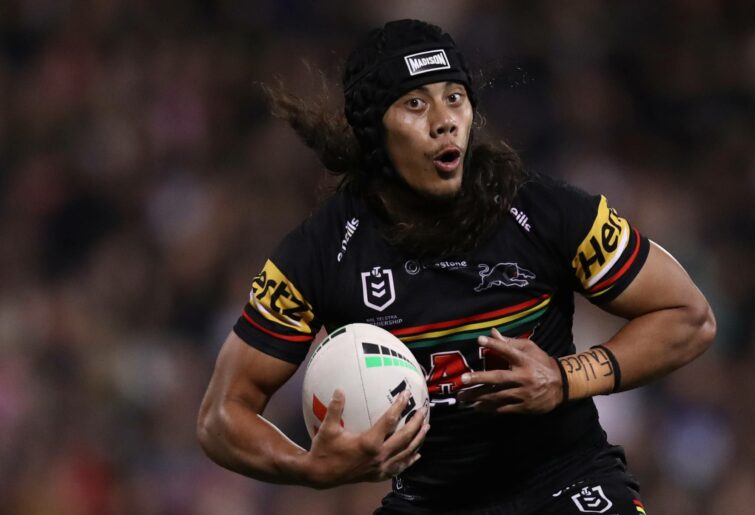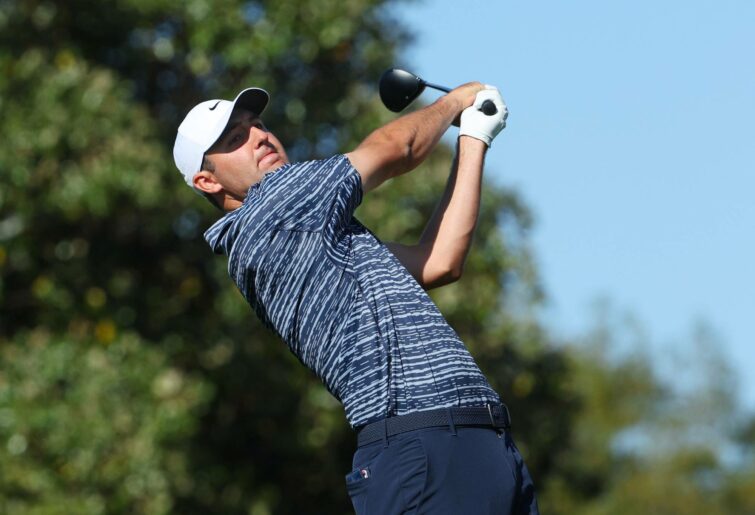With the COVID threat seemingly a distant memory, rugby league in Australia is thriving and has never looked stronger, with healthy match day attendances and TV audiences, rule changes now nicely bedded in and producing some great free-flowing football, and expansion plans on track with the successful addition of Wayne Bennett’s Dolphins this year.
Even the threat to the Kangaroos’ on-field dominance from both the emerging Pasifika teams and the resurgent Kiwis is a good thing for the game, and there’s probably very few pressing matters currently on the NRL’s agenda for the first time in many years.
Surely, this is the perfect time to just sit back, relax, enjoy the game, and let the good times roll. Or is it, as perhaps there’s a perfect storm brewing for another “Super League”-style attack on the NRL?
In the business world, whenever things are humming along smoothly one of the biggest threats is a disruption which changes the status quo and your business plan, and that’s exactly the type of threat Super League 2.0 would pose to the NRL’s successful business model.
It’s nearly 30 years now since Rupert Murdoch’s cashed-up Super League Visigoths appeared on the horizon to threaten the very existence of rugby league as we knew it, and while the NRL competition we have today was born out of a peace deal between the warring parties, there were no future guarantees. Surely it couldn’t happen again, could it?
Well, of course it could, and in many respects it’s more likely to succeed today when the game is thriving than it was back in the 1990s.
Today, more than ever, pay television is prepared to part with large amounts of money for broadcast content, particularly sport, and there are also many wealthy individuals and corporations out there prepared to get involved in any game that could give them an acceptable return on their investment. Some might even do it for fun, just because they can.
At the same time, most of today’s rugby league players appear to put financial reward before loyalty to their club, state, and country, and given the damage they do to their bodies in the short window they have to play the game at the elite level, who could blame them? Money talks!

Jarome Luai will head to Concord in 2025 on a big-money deal (Photo by Jason McCawley/Getty Images)
With the right financial resources and pay TV revenues, a corporate raider could assemble say, 10 or 12 elite teams full of the best players in the game, sourced from the NRL, the English Super League and even rugby, run their own competition, and effectively put the NRL’s future revenues and entire competition at risk.
Faced with the choice of surviving or perishing, and with the lure of better financial incentives than may currently be available, it wouldn’t be out of the question for many NRL clubs to just uproot from the NRL and join a new competition as they did the last time they received a financial offer they couldn’t refuse.
Remember, of the 17 teams currently in the NRL, the Warriors, Broncos, Raiders, Sharks, Bulldogs, Panthers and Cowboys all jumped ship to the Super League competition in 1997, while the only clubs still in existence today who remained loyal to the ARL back then are the Roosters, Rabbitohs, Sea Eagles, Knights and Eels, with the other seven clubs in the inaugural 1997 ARL competition having long since folded or merged.
You only need to look as far as the IPL, and the other big-money TV-saturating 20/20 cricket competitions, to witness the level of disruption to traditional cricket competitions, Test matches and the Sheffield Shield.
The 20/20 leagues are where the financial action is, and in the case of the IPL, the International Cricket Council now has a situation of the tail wagging the dog, ably assisted by the Board of Control of Cricket in India who place their domestic IPL competition above all else. Money talks!
When it comes to sports game changers, they don’t come any bigger or more disruptive than LIV Golf, which in just two years threatens to turn rival professional golf competitions, including the once all-powerful US PGA tour, into a sideshow.
Just to indicate the power of the Saudi-based LIV competition, fronted by Australia’s best known sporting ex-pat in Greg Norman, its top tournament prize winner Talor Gooch picked up over US$35 million last year, compared to the PGA’s Scottie Scheffler, who earned US$21 million.

Team USA member Scottie Scheffler. (Photo by Andrew Redington/Getty Images)
Of course, tournament winnings aren’t the only reason golfers are voting with their feet and heading to LIV Golf, as the eye-watering sign-on fees are off the scale, with the likes of Jon Rahm’s recent move to LIV reportedly worth over US$500 million (say that again slowly), while others like Phil Mickelson allegedly received around $200 million and Dustin Johnson apparently cashed in to the tune of $125 million back in 2022. Money talks!
Now, I’m not suggesting for one moment that Super League 2.0 would have anything like the financial scale or broadcast appeal of either the IPL or professional golf, but it’s all relative, and could probably be created without the added costs of funding junior competitions, the NRLW, junior pathways, country rugby league, international heritage teams, referee development …and so the list of “overheads” goes on.
Super League 2.0 wouldn’t want to kill off the NRL, just take what it can when it needs it and keep it alive to provide more of the same over time.
There’s no point saying Super League 2.0 either can’t or won’t happen, as the likes of Rupert Murdoch, Kerry Packer, Lalit Modi and Greg Norman have proved otherwise. It’s more a matter of when, rather than if.
Let’s just hope that the NRL has their eyes open, continually go through their SWOT analysis, and are working on a contingency plan for when the moneymen come knocking. After all, money talks!






























































































